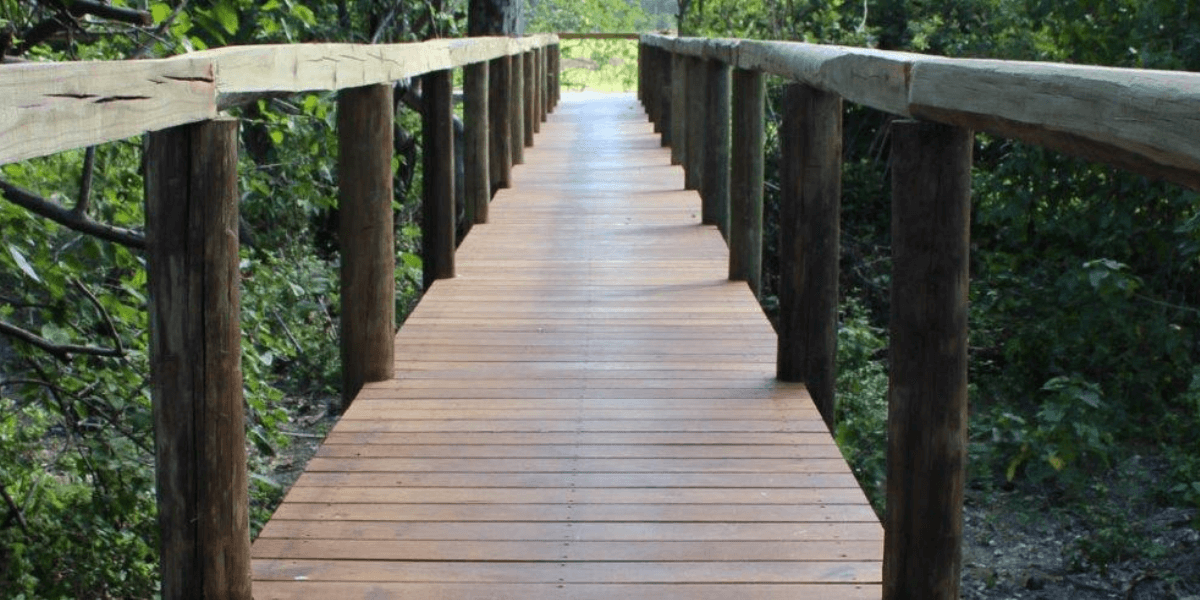Advertisement
Haven’t we all at some point in our lives wished we could chuck the day job and launch out as entrepreneurs with an innovative and successful idea?
Some put those dreams on hold and start each new year as they did the last… but others ‘just do it’. Like the young entrepreneurs at Rhino Wood, who saw the opportunity of combining a by-product usually destined for landfill with a renewable resource to create a sustainable product that is taking the building scene by storm.
The idea
Scott Sargent and Stuart Prior’s ‘day job’ was in the family business, in the wax industry – not the kind that comes from bees, nor the kind candles are made of: this was hard-core wax, a by-product of the petro-chemical industry. They found that one of the wax by-products was too hard for the standard uses and started looking at alternatives. And that alternative happened to be as a timber preservative. After much chemical experimentation, a wax with the ‘right’ molecular structure was developed for use on our local, sustainable, but soft, raw pine. And using their patented process, the soft pine is modified to have the strength and resilience of other building materials while retaining the warmth and style that timber offers.
This patented technology is a completely natural two-phase modification that permanently changes the chemical structure of the raw pine, from the surface right into its core, to create a stable, strong and durable material. The timber initially goes through a thermal heat process and is then pressure impregnated with a non-toxic natural wax-like compound that fills the naturally occurring gaps in the timber’s cells, thereby pushing moisture out and increasing its stability and durability.
The upside of the process is that the modified timber is now less susceptible to damp, decay and fungi, and the big-chain hydrocarbons in the wax eliminate softness, add strength and make the timber somewhat unpalatable to wood-destroying insects like wood borers and termites. So this timber is virtually maintenance-free, and when left to weather naturally will change from its rich wood colour to a beautiful grey patina. An added benefit is that this product contains zero toxins, and contains no volatile organic compounds (VOCs).
As the business grew, it became evident that a sales person was required, and Andrew Prior, Stuart’s brother, joined the team. He had been working in northern Mozambique on a gas extraction project, running the ESMP (Environmental and Social Management Plan), and said that, as the project had reached a point where he could hand over responsibility to local managers, he felt it was time to leave. Since joining the team in a sales capacity, Andrew has grown the sales team to four.
Advertisement
Rhino Wood and Sustainability
Previously, decking was usually made from imported hardwoods grown in the endangered Asian, African and South American rainforests. These forests are diminishing at an alarming rate, and even when logged ‘selectively’, the impact on forest biodiversity cannot be denied. Deforestation is a huge contributor to carbon emissions and climate change. And, unless you’ve been living under a ‘log’, you’ll know that these rainforests are the Earth’s ‘green lungs’ and somewhat crucial to our existence.
So impressed was WWF South Africa by Rhino Wood’s innovations in carbon emission reduction and sustainability that they named the company as one of three winners of the South African Climate Solver Awards in 2014. Says WWF-SA CEO, Morné du Plessis: ‘Innovation, by its nature, brings value to people. WWF believes that this value should include radically reduced carbon emissions and energy access, and be compatible with a transition to a renewable energy future.’
As Rhino Wood is a local company sourcing local product, it brings the additional benefit of employment, affording financial freedom to many. Andrew explains this knock-on effect:
‘Rhino Wood uses a locally grown SA pine, which is grown in plantations that employ many people to grow and harvest the trees, and mill and transport the wood. Rhino Wood has 12 full-time employees, and Timbermax, who do our machining, have approximately 35 people employed. Each decking installer has a team or two, each consisting of about five or six guys.’
And, as we all know, creating employment in South Africa is vital.
If you’re thinking of having a deck installed, but consider them to be an extravagance, consider this: a well-built, well-designed deck offers not only an enhanced social lifestyle but adds real investment value. Property agents often list them as one of the top factors that can increase the value of property – especially when you’re ticking the minimal maintenance, long-term savings and sustainability boxes.
And while you’re sitting at your deck contemplating the year ahead, waiting for that boerie on the braai to be done to perfection, consider stepping out of your comfort zone and grabbing those dreams with both hands – perhaps you’ll have the answer to another climate change challenge.
If so, Andrew Prior offers this advice: ‘Ups and downs; be prepared to feel as if you are making a difference and that your business is set for great growth. But also be prepared to “dig in” as there are always multiple factors that you may not have considered in any market. However, if these factors present themselves as challenges, then you have to look at them as opportunities, otherwise you will never achieve the lofty goal you set yourself when you first started out.’
Tessa Buhrmann



